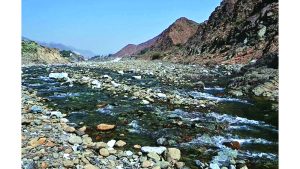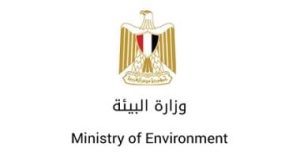The Environment Agency – Abu Dhabi confirmed its efforts to address the intertwined challenges of climate change impacts, aiming to mitigate or adapt to them. It highlighted three interconnected elements particularly vulnerable to these effects: groundwater, food production, and seawater desalination. Understanding how these elements are affected may help prepare for upcoming challenges and reduce their severity or adapt accordingly.
The agency warned that climate change is a complex, multifaceted issue affecting various aspects of life. The three interconnected elements vulnerable to its impact are groundwater, food production, and seawater desalination. It noted that Abu Dhabi’s water sources are distributed approximately as 55% groundwater, 34% desalinated water, and 11% recycled water.
Through its Climate Change Adaptation Plan for Abu Dhabi, the agency seeks to protect long-term environmental sustainability, which is essential for ensuring food and water security, environmental safety, and social and economic prosperity in the emirate. The plan’s main goals include identifying vulnerabilities in different ecosystems caused by climate change, implementing strategies, programs, and initiatives aimed at adapting to expected changes, ensuring the functioning of ecological systems vital for agriculture, biodiversity, and environmental safety, coordinating efforts with national and international climate change goals, and enhancing the UAE’s commitment to sustainable development and environmental oversight.
The agency’s Secretary-General, Dr. Sheikha Al Dhaheri, described Abu Dhabi’s Climate Change Adaptation Plan as a forward-looking vision and a pivotal framework to face the growing challenges imposed by climate change.
In presenting the plan, she said it is “a living testimony that our future will not be controlled by the challenges we face, but by the courage we have to overcome them.”
The agency explained in the 2025-2050 Climate Change Adaptation Plan for Abu Dhabi that desalinated seawater is the primary source of drinking water in the emirate, meeting 100% of its potable water needs. Groundwater is used for irrigation in agriculture, forestry, gardens, and ornamental plantings in Abu Dhabi, but it is a limited resource being depleted faster than it renews. The total groundwater extracted in 2024 reached about 1,830 million cubic meters. The annual production of recycled water (meeting international standards such as those of the US Environmental Protection Agency) was 350 million cubic meters in 2023. The government currently plans to reuse recycled water for irrigation to replace desalinated and groundwater. In 2024, the amount of recycled water supplied to about 1,540 farms reached 130 thousand cubic meters per day.
The agency’s plan, obtained by “Emarat Al Youm,” indicated that Abu Dhabi faces water scarcity due to its location in the dry belt characterized by low natural recharge rates of groundwater reservoirs, attributed to low rainfall rates not exceeding 90 to 140 million cubic meters annually. About 44% of water reserves have become highly saline. Studies show that around 97% of groundwater reserves in Abu Dhabi are highly or moderately saline and unsuitable for most uses without desalination, with only 3% being fresh.
The agency noted that total groundwater resources amount to 606 cubic kilometers, and total fresh water resources are 18 cubic kilometers. Salinity levels in groundwater generally rise in coastal areas due to seawater intrusion. Inland areas also have saline zones, especially near sabkhas (salt flats). High salinity restricts the use of this water in agricultural activities in several areas, necessitating alternative water sources or cultivation of salt-tolerant crops.
Groundwater accounts for about 58% of the total water resources used in the emirate, desalinated water about 33%, and recycled water 9%. Approximately 65% of water resources are allocated for irrigation in agriculture, forestry, gardens, and parks. The emirate faces worsening problems due to increased current groundwater pumping rates caused by agricultural expansion and rising water demand. Current consumption reached 1,870 million cubic meters annually in 2023, about 20 times the natural recharge rate of groundwater reservoirs.
It is expected that the scarcity of fresh water sources will increase demand for desalinated seawater for drinking, irrigation, and industrial use by large percentages. Since desalination consumes a large amount of energy, and the discharge of saline water from desalination plants can negatively affect marine ecosystems if not properly controlled, the expected rise in temperatures may increase seawater salinity, which could increase evaporation rates from the Arabian Gulf surface and reduce marine water circulation. This will affect desalination efficiency, increase energy consumption in desalination, and consequently increase carbon emissions.
The agency warned of declining agricultural production, as changes in weather patterns including extreme weather conditions such as droughts, floods, and heatwaves disrupt agricultural activities and reduce crop yields, threatening food security and causing price volatility. Rising temperatures and changing rainfall patterns also create favorable environments for the spread and introduction of pests and diseases to new areas within the emirate and country. Higher temperatures may also alter the population dynamics of natural enemies, causing an imbalance between pests and their natural enemies. Additionally, soil salinity caused by rising sea levels and excessive groundwater extraction may severely affect crop productivity.
Increasing Demand
The Environment Agency – Abu Dhabi emphasized that these challenges cannot be viewed in isolation. Groundwater depletion and increased salinity affect food production, and the rising demand for desalinated water due to scarcity can increase pressure on energy resources and costs.
It stated that these factors, individually or combined, have repercussions on human health, livelihoods, and economies.
“Environment Agency – Abu Dhabi”:
- Groundwater consumption is 20 times the natural recharge rate of groundwater reservoirs.













Recommended for you
Exhibition City Completes About 80% of Preparations for the Damascus International Fair Launch
Talib Al-Rifai Chronicles Kuwaiti Art Heritage in "Doukhi.. Tasaseem Al-Saba"
Unified Admission Applications Start Tuesday with 640 Students to be Accepted in Medicine
Egypt Post: We Have Over 10 Million Customers in Savings Accounts and Offer Daily, Monthly, and Annual Returns
His Highness Sheikh Isa bin Salman bin Hamad Al Khalifa Receives the United States Ambassador to the Kingdom of Bahrain
Al-Jaghbeer: The Industrial Sector Leads Economic Growth